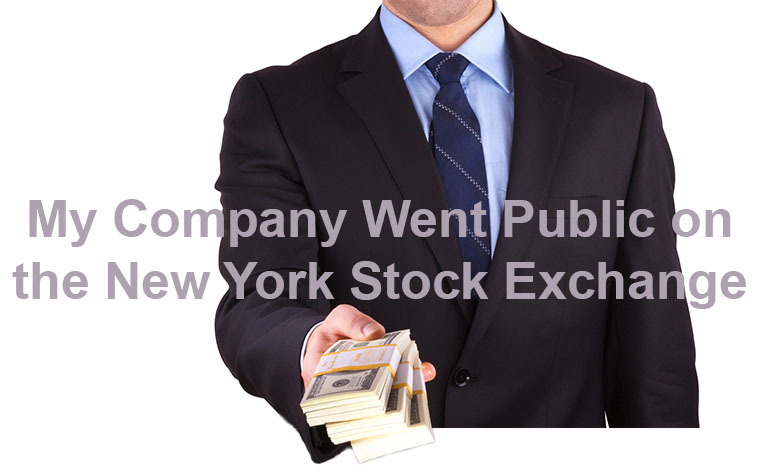
If I were a farmer, I would plant orchards and vineyards.
If I were a farmer, I would sell milk and eggs.
If I were a farmer, I would sell wool.
If I were a farmer, I would never trust a weasel with a calculator.
Allow me to explain.
When you plant crops, you have to replant them after every harvest. You are always starting over.
When you plant orchards and vineyards, you get to see the roots grow deeper and the fruit grow bigger each year. You are in partnership with the land, the trees, and the grapevines. You are on a journey with your employees and your surroundings.
When you sell beef and chicken and lamb, you are always starting over.
When you sell milk and eggs and wool, you are a caretaker in a partnership with your flocks and herds. You give them what they need, and they give you milk and eggs and wool. It is sustainable system.
It usually takes 6 to 10 years to grow a little company into a big one. Interestingly, that’s about the same length of time it takes to establish a spectacular orchard or vineyard.
If I were selling a home services company, I would connect with a group of likeminded business owners and then go public together on the New York Stock Exchange. I would sell to private equity only as a last resort.
Private equity companies are stalking business owners who are ready to retire.
They say to the business owner, “We want to buy controlling interest in your company and take it to the next level. We love what you’ve built. We don’t want to change a thing. In fact, we want you to stay for another 3 to 5 years and keep running it just like you’ve been running it. And whatever money you leave in the company will be worth 5 to 10 times as much in just 3 to 5 years.”
My friends who have sold to private equity have left from 15% to 50% of the sales price in their companies, trusting that it would grow 5x to 10x in just 3 to 5 years.
I have never once seen it turn out that way.
Here’s what I’ve seen happen time after time: the momentum of your company will keep everything rocking along pretty smoothly for about a year. Then a lot of your people will lose their jobs due to staff cuts. Your customers will lose faith in your company due to the erosion of service standards, and your TV and Radio budgets will be reallocated to pay-per-click.
That’s when the bus begins to wobble as the wheels start falling off.
About 3 years after private equity steps in, the bank loans are being renegotiated, the employees have scattered, the customers are disillusioned, and everyone is unhappy. Especially you.
I’ve seen this movie 9 times. I know how it ends.
When you sell to a company that has no interest in running your business in the long-term, why does it surprise you when they have no long-term plans and make no long-term investments?
But until now, there were no other exit strategies available to the average business owner.
Abrams and Young gathered up a bunch of likeminded business owners and took those companies public on the New York Stock exchange under the name Service Experts (NYSE-SVE) back in 1996.
Service Experts went private again when all of their stock was purchased by Lennox Air Conditioning in 2000. According to their website, “Our more than 86 service locations across 29 states in the United States employ over 3,900 Experts—allowing us to serve an average of 3,200 homes and businesses each working day.”
Google says Service Experts revenues are about 2 billion dollars a year.
Lennox kept those entrepreneurial companies alive and thriving because Lennox wants to be in the air conditioning business. Private equity companies do not.
Do you want your company to continue to exist, serve your customers, and provide good jobs to men and women in your community? Don’t sell to private equity. Become part of a public offering.
If you want your company to have a bright future, sell it to someone who wants to sell milk instead of beef, eggs instead of chicken, and fruit instead of firewood.
Sell it to someone who wants to be in the business you’re in.
Another smart way to cash out and lift your company into a happy future is to sell it to your employees through the magical mechanism of an ESOP. Your employees don’t have to invest a single penny, and they will never be at risk financially. Neither will you. I’ll bet you didn’t know that, did you?
If more people understood how these things work, we would see a lot more people selling their businesses through IPO’s and ESOP’s. These exits require more patience and a steadier hand, but your customers will be happier, your employees will be happier, and you will beam with pride when you tell your story. And in the case of an IPO on the New York Stock Exchange, you’ll likely walk away with a lot more money.
If you want to know more, contact Jake Williams.
Earl Nightingale gave me some great advice. Let me pass it along to you:
“Never give up on a dream just because of the time it will take to accomplish it. The time will pass anyway.”
Roy H. Williams
Great ad writers have no interest in client acquisition because they’re not paid according to how much their clients spend on advertising. They’re paid according to how much their clients grow. Great ad writers care only about client retention and client growth. Orchards and vineyards.